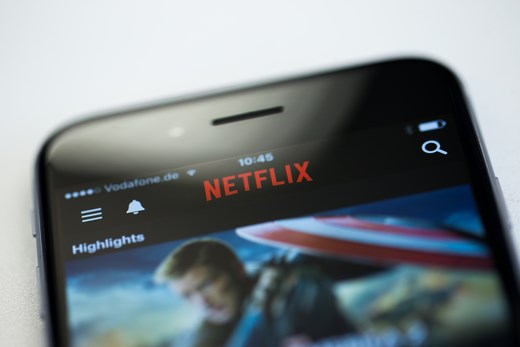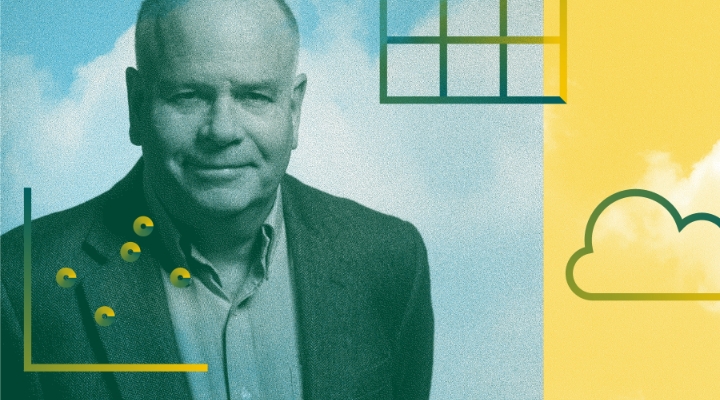
While at home with my parents this Easter, my father uttered something so profound I did a double take and realised his recent retirement had in fact been a good idea.
Over a late-night discussion about television formats, he mentioned the recent comments of actor Dan Stevens on The BBC’s The One Show, during which the Gaslit creator had, to audibe studio gasps, riffed off the similarities between Boris Johnson and Richard Nixon.
This reminded me of an equally-amusing sketch by the comedy duo Armstrong and Miller. In it, the pair poke fun at the euphemistic way children’s TV presenters have apologised for their indiscretions while continuing their bewilderingly broad array of content.
In one particular skit, their mock-Blue Peter presenters introduce a trip to a cake museum in Dundee, as though their prior trips to illicit clubs suddenly matter not. Quite apart from being a good satire of several nineties and noughties children’s TV scandals, the joke is also poking fun at the breadth and depth required of presenters, and how it is they often fail to deliver either with any semblance of seriousness.
In Dad’s view, The One Show’s mix of this kind of profane-cum-trivial content makes it “an analogue version of the internet”. He’s right. It’s a tragically-late substitute for something else already far more dynamic, like the offices hooked on electric typewriters when computers were already taking over the world, or, to make a pointed comment about electric vehicles on Earth Day: diesel engines.
May I Have Your Attention?
Whether you think it’s mediocrity incarnate, or a genuinely-enjoyable watch, there's no doubt that, like the internet, The One Show is “a little bit of everything, all of the time” (see my previous column on Bo Burnham and the ruinous impact of LinkedIn on our ability to think clearly).
Thanks to this, I am wondering how on Earth we cope when faced with millions of vastly different (and tiny, and often inaccurate) bits of information. For those of us with internet-induced attention span problems (er, me), I remember once more how it makes money that much harder to manage.
If you’ve made it this far, Morningstar Investment Management’s global chief investment officer Dan Kemp is something of a behavioural finance fan. I asked him to go into a bit more detail about the relationship between our attention spans and our capacity for investing error. I think there is a strong link.
Kemp says human beings are arch-avoiders who dislike uncertainty, so we typically try to replace it with thoughts of risk or certainty. We do this by changing the question of “how do I deal with uncertainty?” to either “is this situation similar to others I’ve experienced?” or “how does the current situation make me feel?”.
"By removing the uncertainty of the future with [what feels like] a known outcome, we are effectively pulling the future into the present,” he explains. “While this has no impact on the eventual outcome, it helps us to make a fast decision when we would otherwise take much longer.”
The drawback of this approach is that we can be over-committed to a single outcome and become over-confident in our decisions – which is why it is important to test investment decisions by third parties who can help us consider other potential outcomes.
His second point will also be familiar to you. Humans feel losses more than they value gains. But there’s even more to it than just that. A phenomenon called uneven discounting for the future can lead us to irrational preferences.
"For example, we may have a strong preference for £95 now compared to £100 in a month’s time, but exhibit a far weaker preference for £100 in 61 months compared to £95 in 60 months,” Kemp says.
"As a consequence, the more we become focused on immediate rewards the more we are likely to make seemingly irrational decisions.”
And it’s that bit that is very relevant.
In the modern era of internet variety, distractions do feel like immediate rewards.
Why, then, would you deal with a serious problem today when you could look up the various ways cats display emotion to their owners?
(For the record this is a legitimately interesting topic, it’s just that it’s a dangerous distraction that fulfils our short-term desire to feel better-informed [or wholesome] while contributing little to our longer-term life plans). But back to money. I am getting distracted.
The Streaming Struggle
Investors have seen a real-world case study in distraction this week: Netflix.
Netflix’s deflated subscription figures are, in my view, the culmination of its failure as a business to diversify.
Unlike Amazon, for whom Amazon Prime is just one string in a very large bow, it is solely dependent on its core streaming product to survive. If it wants to make more money it can only do two things: increase its subscribers, or charge them more.
It's not clear which Netflix values more. The hype surrounding its hit series should translate into increased subscriptions, but that's a model that doesn’t necessarily seem to be working as well as it might. Is that why it has pulled its second lever of late?
You get a lot for what you pay. But some of it is brilliant and some of it is dross, just like The One Show. Not differentiating between the two in its pricing is arguably an oversight. Having not decided whether it is a vehicle for quality or quantity, users of the service (*raises hand once more*) are rightly confused too.
I'll add at this point that its aesthetics are under threat from competitor offerings with a much slicker user experience. Disney+ is one such example. But that’s not the only way in which it is a threat.
The Peter Jackson-directed Beatles documentary Get Back changed consumer perceptions of the Disney brand from our sugar-coated Miley Cyrus milieu that came to define the aftermath of the millennium to a sophisticated, slick and mature model for brilliant content.
Where does distraction come into this? Well, streaming users (quelle surprise, me again) will recount just how difficult it is to pick something to watch, and then actually stick with it, but Netflix is a particular culprit.
In benefiting from the variety precedent set by the internet, then, Netflix also faces the spectre of uncomitted users who can just as easily switch off their TVs, or, worse still, their subscriptions. Somewhere there are internal analytics reports that will show the proportion of content actually “completed” by viewers, and it's probably low.
Overall, this is all the more reason to be wary of companies whose revenue depends on short-term demands on your precious time, and all the more reason to heed Dan Kemp’s warning. Fail to fix it, and the chill descending over one of the 2010's most promising FAANG stocks will likely only get colder.
Ollie Smith is UK editor at Morningstar. To participate in a Zoom group where readers can discuss their investing interests, email him at Ollie.Smith@morningstar.com




























